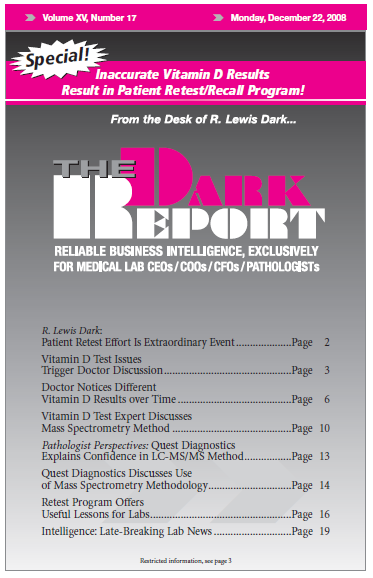CEO SUMMARY: Psychiatrist John J. Cannell, M.D., was in a unique position to see the noticeable upward shift in the Vitamin D results reported on his patients by Quest Diagnostics Incorporated over the past 24 months, along with the recent decline in test result levels in recent weeks. His Vitamin D Council and his newsletter, …
Doctor Notices Different Vitamin D Results over Time Read More »
To access this post, you must purchase The Dark Report.


